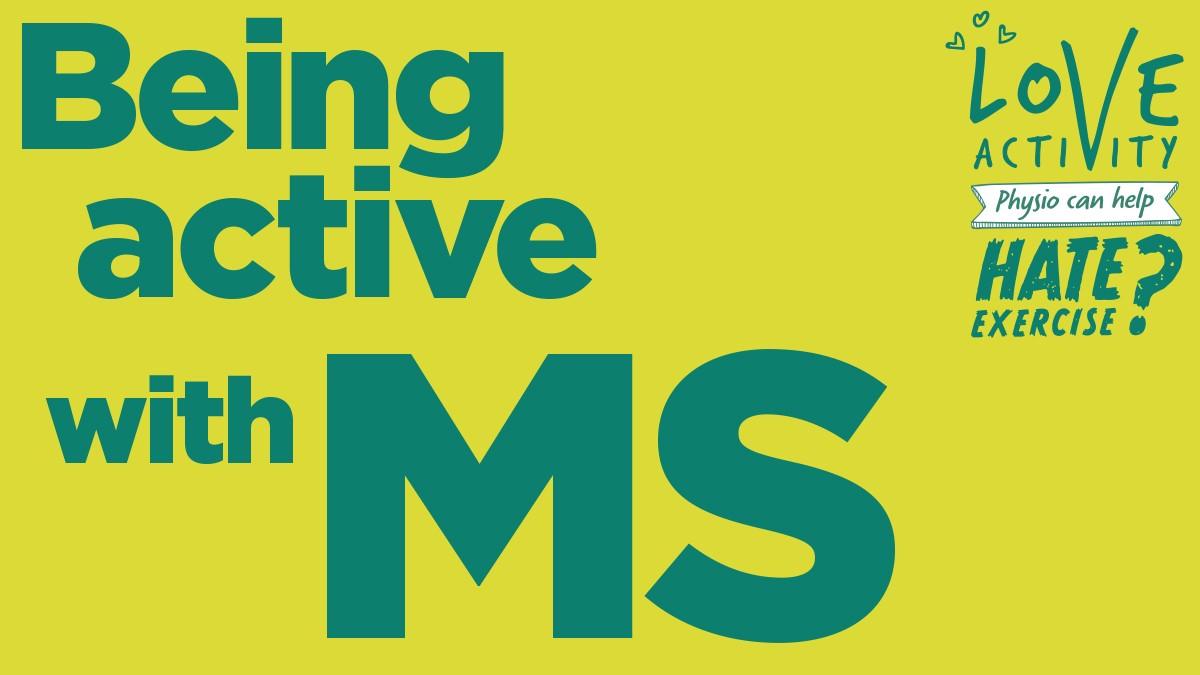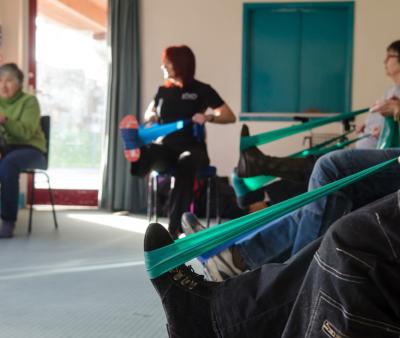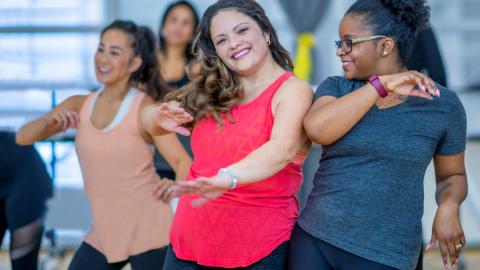Regular, moderate exercise is an important part of maintaining good health and wellbeing for people with MS.

There is good evidence that exercise can help with MS symptoms, and quality of life.
Here's how you can get started.
- Everyone's MS is different so pace yourself with activities, especially gardening in the summer. It is easy to get carried away but ensure you have enough breaks as well!
Try to complete exercises little and often during the day. e.g. when waiting for the kettle to boil, you could do 10 squats, or when brushing your teeth, you could complete 10 heel raises
- Keep all your joints moving and muscles active. If you're sitting in a wheelchair most of the day, small movements like bending or straightening your knees or marching your legs up and down can be vital to keep those joints well 'oiled'
- Adopt the "24 hour" approach when moving around. For example ensure every time you stand up or walk around the motion and posture is performed to your best ability
- Consider light exercise to help build up your stamina e.g. yoga, pilates or swimming. You can adapt any exercises to suit you in the class environment. You could also consider joining a gym under guidance from a healthcare professional

- Try not to compare yourself to others. Everyone with MS has slightly different problems with different rates of disease progression. Focus on what you can do now and what things you can do to improve
- Ensure you have a support group around you such as family, friends or a community group and always remember that it's ok to ask for help if you need it
- Experiencing "strange sensations" in your body can be due to nerve misinterpretation of "normal sensations". Consider supplying your sensory system with different information such as having a bath/shower, or having a massage
- MS can be variable which means you can have good days and bad days. Be mindful and ensure you modify your activities depending on how you feel.
If you’re still not sure where to start, a physiotherapist can assess you and work with you to create a weekly activity plan
You can download this page for future reference.
Being active with MS
Find Out More
Last reviewed:



